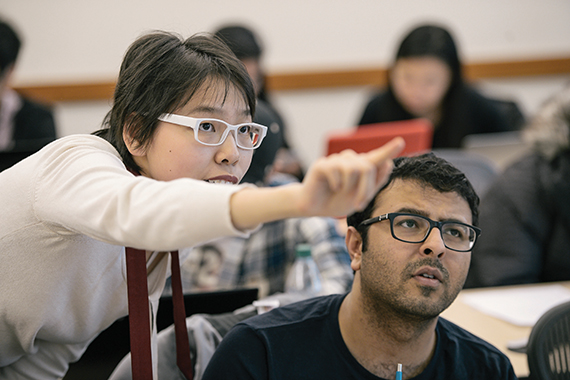
Our results came from a pair of field experiments conducted with nearly 4,000 college students enrolled in an on-campus, semester-long course at a U.S. public university. The first group of students set goals for the course based on their performance on the midterm and final exams, and their overall letter grade. The second group set task-based goals for the number of online practice exams they completed prior to the midterm and final.
Performance-based goals are more about measuring outputs, while task-based goals focus more on inputs — the specific activities, work and effort a student is putting into a course. Our results show that although performance-based goals do have a positive impact, the effects on course outcomes are small and statistically insignificant.
In contrast, having students set task-based goals proved more effective. Students who increased the number of practice exams they completed produced significantly larger and more robust positive effects. This suggests that if task-based goals are chosen appropriately, they can be used to improve educational performance and encourage students to make greater investments of human capital.
The study also takes into account the level of self-control exhibited by college students, who are legally adults but often lack discipline. They might intend to put forth the required level of effort, but when it actually comes time to go to class or study, they fall short. Setting goals can act as a commitment device to help these students increase their efforts.
Academic advising services are a particularly promising vehicle for promoting the benefits of task-based goal setting. Indeed, American colleges already offer a panoply of student services, from counselors and mentors to campus centers and student success programs. Goal setting is integral to all these services, so emphasizing particular tasks to improve student performance can easily be incorporated as part of a larger initiative.
Within the School of Management, for example, task-based goal setting takes place on multiple academic levels, including the Krannert Leaders Academy for undergraduates and experiential consulting projects for MBA students. Students’ performance in case and business plan competitions benefit from task-based goal setting as well.
From a campus-wide perspective, goal setting also is logistically simple enough for instructors to incorporate it into their existing teaching arsenal, whether it is in a traditional classroom, an online platform or even part of a project-based, capstone course. It is something we as faculty can do without additional infrastructure or cost in virtually any academic environment.
Victoria Prowse is the Magner Chair and an associate professor of economics who joined Krannert in 2016 from Cornell University. She earned her bachelor’s, graduate and doctoral degrees from Oxford University and has been published in numerous academic journals, including the American Economic Review, Journal of Political Economy, Journal of Econometrics and Quantitative Economics, among others. Her research focuses primarily on labor supply and policy reform.






